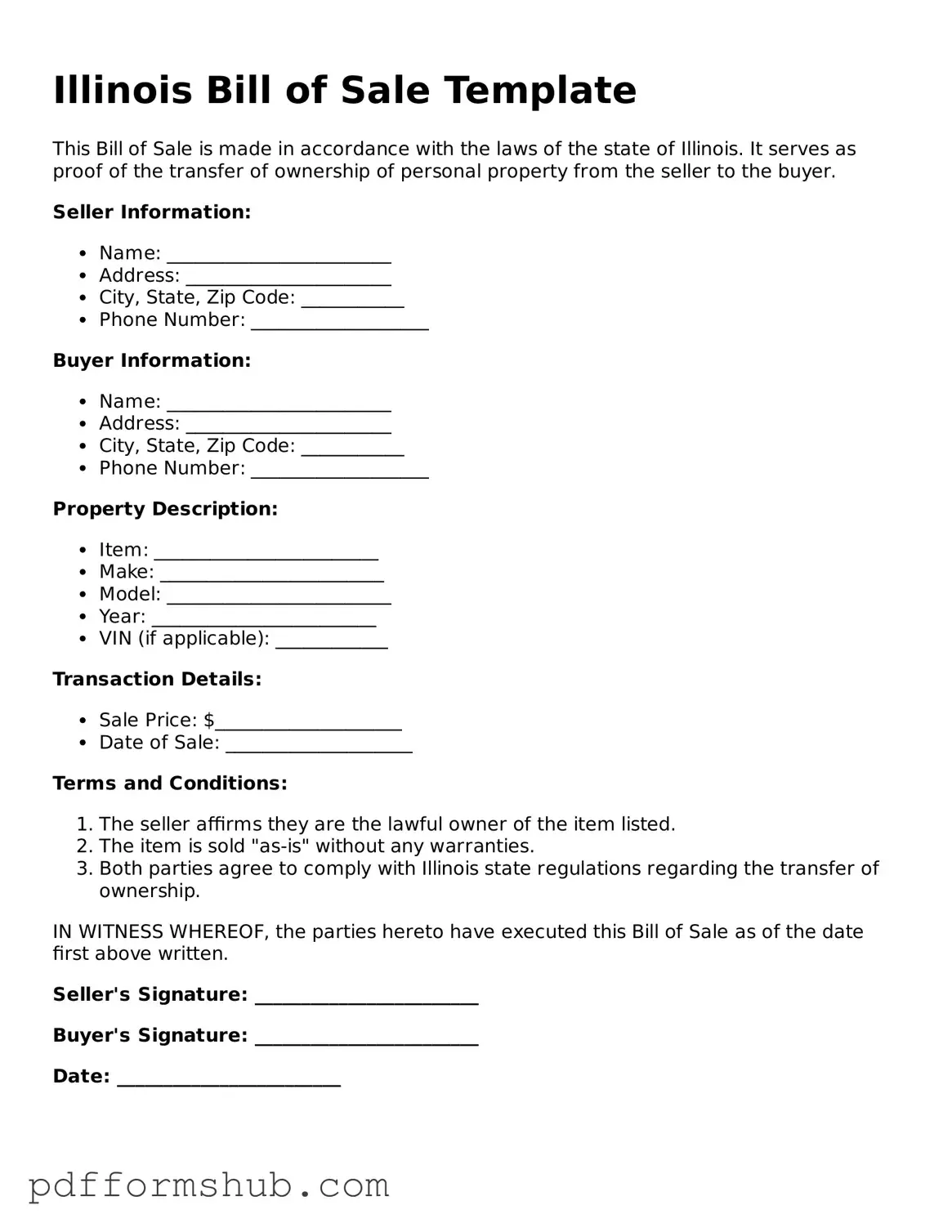Attorney-Verified Bill of Sale Form for Illinois State
The Illinois Bill of Sale form is a legal document used to transfer ownership of personal property from one party to another. This form serves as proof of the transaction and details important information about the buyer, seller, and the item being sold. To ensure a smooth transfer of ownership, consider filling out the form by clicking the button below.
Customize Form

Attorney-Verified Bill of Sale Form for Illinois State
Customize Form

Customize Form
or
Free PDF Form
Short deadline? Complete this form now
Complete Bill of Sale online without printing hassles.